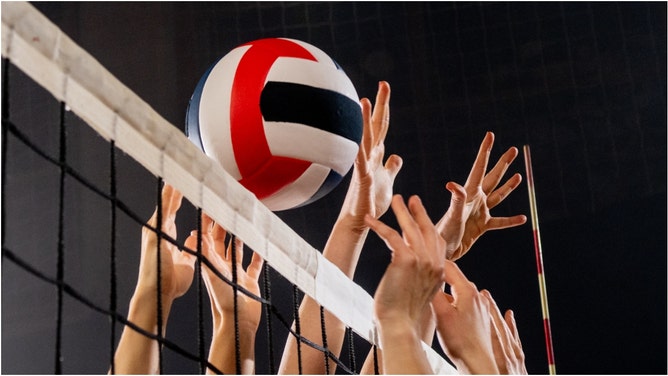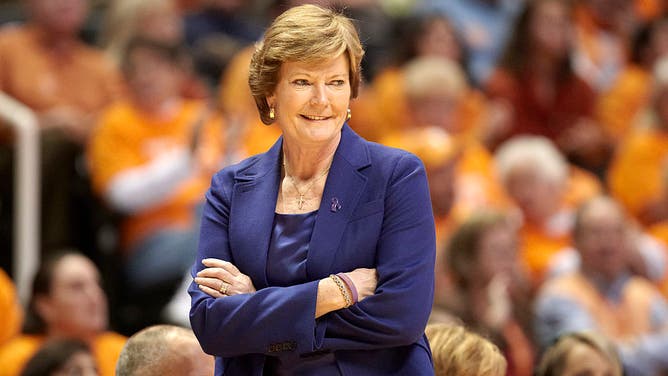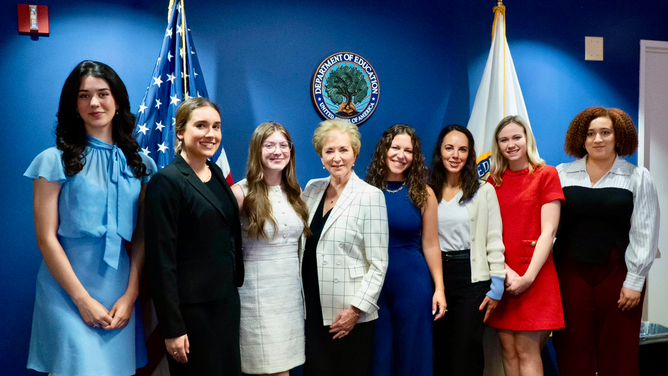Title IX Let Me Play Like a Girl — And I’m Grateful for That | Amber Harding
As Title IX marks its 53rd anniversary, I’m looking back on the sports, stories, and women who made me — and the law that protected our space to play.
In sixth grade, I could beat all the boys at arm wrestling.
I peaked early, OK?
It was 2000. I was 11 years old at our class picnic, and my middle school "boyfriend" (a term I use loosely here) challenged me to an arm wrestling match. When I beat him, the rest of the boys lined up one by one to try their luck. And one by one, I took them down.
For one brief, shining moment, I was invincible. A scrappy, undersized tomboy with a mean grip and a chip on her shoulder. Surely, I was destined for greatness.

I felt something like this.
(Getty Images)
This dominance was, of course, short-lived.
Soon, the boys hit puberty. They grew bigger and stronger. Me, though? Not so much. Even now, I still haven’t grown an inch taller than I was that day at the picnic — a towering 5-foot-2 — and I learned a lesson that every girl learns eventually: that no matter how tough or determined you are, biology isn't fair.
And that’s why what’s happening in 2025 — males competing in women’s sports and smug media elitists insisting the male advantage is a "myth" — feels completely insane. You don’t need a PhD in kinesiology to understand why boys shouldn’t be competing against girls. You just need eyeballs. And a brain.
Thank God For Title IX, Right?
Monday, June 23, marks the 53rd anniversary of Title IX — the landmark federal law that prohibits sex-based discrimination in education (including athletics) for any school that receives federal funding. And while most people associate Title IX with elite college athletics, its greatest gift has always been opportunity. For all girls. At every level.
I played sports throughout my childhood — everything from softball to gymnastics to basketball and kickball in the cul-de-sac. But it was volleyball that stole my heart. I started playing travel volleyball in fifth grade and stuck with it through high school. Given my height, I was a downright liability at the net. But I was quick, scrappy on defense, and had a killer serve that earned me a spot on a Junior Olympic team.
I was decent, not great. I wasn't destined for a Division I scholarship. But that was never the point, anyway.

(Getty Images)
Because of Title IX, I had the opportunity to compete on a fair playing field (well, court). I didn’t have to face boys who could out-jump me, out-muscle me, and spike the ball hard enough to leave a dent in my forehead. There was a league for me. A locker room for me. A space where my friends and I were protected.
Many of my best childhood memories are from playing sports — my dad teaching me how to throw a baseball, camaraderie with my teammates, road trips to out-of-state tournaments, watching my mom go berserk in the bleachers when I made a diving save. I developed a love for competition and athletics that made me stone-cold certain (even in middle school) that I wanted to build a career in sports.
And so I did.

Pat Summitt won eight national championships during her coaching career at the University of Tennessee.
(Photo by Simon Bruty /Sports Illustrated via Getty Images)
At the University of Tennessee, I studied sports journalism and had the honor and privilege of covering the legendary Pat Summitt and the Lady Vols. Pat was a force of nature — a woman who demanded excellence and earned it. She didn’t just coach athletes; she built leaders.
Cliché? Sure. But I was in awe of Pat. I still am. The way she could motivate her players to be their best selves, not just on the court, but in the classroom and as exemplary human beings. The way she looked you in the eyes with respect and addressed you by your name. She knew everyone's name, even this lowly student reporter's.
Pat became head coach at Tennessee in 1974 — just two years after Title IX was signed into law. I don’t know where women’s basketball would be without Pat. But I do know it wouldn’t exist at all without Title IX.
Education Secretary Fights To Give Title IX Back To The Girls
Last week, I had another distinct honor. I was invited to breakfast with Secretary of Education Linda McMahon to celebrate Title IX Month. When she shared her own childhood story about beating the boys in basketball and baseball — until she couldn’t anymore — I had to laugh. This high-ranking Cabinet official was just like me: a former tomboy, shaped by her experiences in sports.
It turns out I’m not the only one who peaked in arm wrestling at age 11.

Linda McMahon invited a group of female reporters to discuss Title IX over breakfast on June 18.
(Photo by Ellia Rosado)
Now, Secretary McMahon is helping lead an effort to ensure the next generation of girls doesn’t have to learn that lesson the hard way. Her department is going after schools and states that allow biological males to compete in girls' sports or hide gender transitions from parents. She made it clear: if you violate Title IX, you will lose funding — and maybe titles and trophies, too.
It’s a bold stance. And a necessary one.
Because Title IX wasn’t written to protect feelings or to be used as a political prop. It was written to protect fairness and safety — and to ensure that girls like me have a chance to play, to grow, to compete and to win.
To the moms and dads reading this: I hope your daughters get the same opportunities I had. I hope they find the sport that lights them up. I hope they stay up late packing their duffel bags and taping their ankles and complaining about double practices. I hope they play hard, win well, and learn how to lose with grace. And I hope they’re given their own space to do that every step of the way.
As for me, I won't be challenging my husband to an arm wrestling match anytime soon. But I’d like to see him try to return my serve.